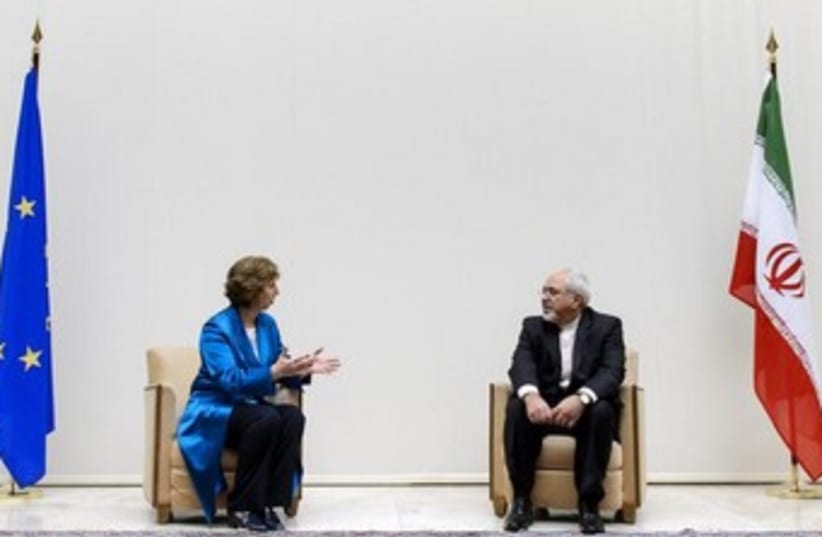During Ashton's two-day visit, her first to Iran and the first by an EU foreign policy chief since 2008, bilateral, regional and international issues will be discussed, the semi-official Fars news agency reported.
Iranian state media and newspapers have given high importance to Ashton's visit, with some reformist media calling it "an achievement" for pragmatist president Hassan Rouhani, who won a surprise election in June on a platform of more openness towards the West.
Iran and six world powers, represented by Ashton, reached an interim deal in Geneva in November aimed at ending a decade-old dispute over Tehran's nuclear activities.
"Naturally, the nuclear issue will be discussed during Mrs. Ashton's visit," Iranian state television showed Deputy Foreign Minister Abbas Araqchi saying.
Seeking to build on the interim accord, which took effect on January 20, Iran and the six powers aim to hammer out a final deal by late July. The next round of the high-level talks between Iran and the P5+1 will be held in Vienna on March 17.
The six powers' overarching goal is to extend the time Iran would need to make enough fissile material and assemble equipment for a nuclear bomb, and to make such a move easier to detect.
Iran has won limited relief of sanctions in exchange for curbing its most sensitive nuclear work under the Geneva deal but demands a full halt to all EU, US and international sanctions to end years of isolation and revive its battered economy.
